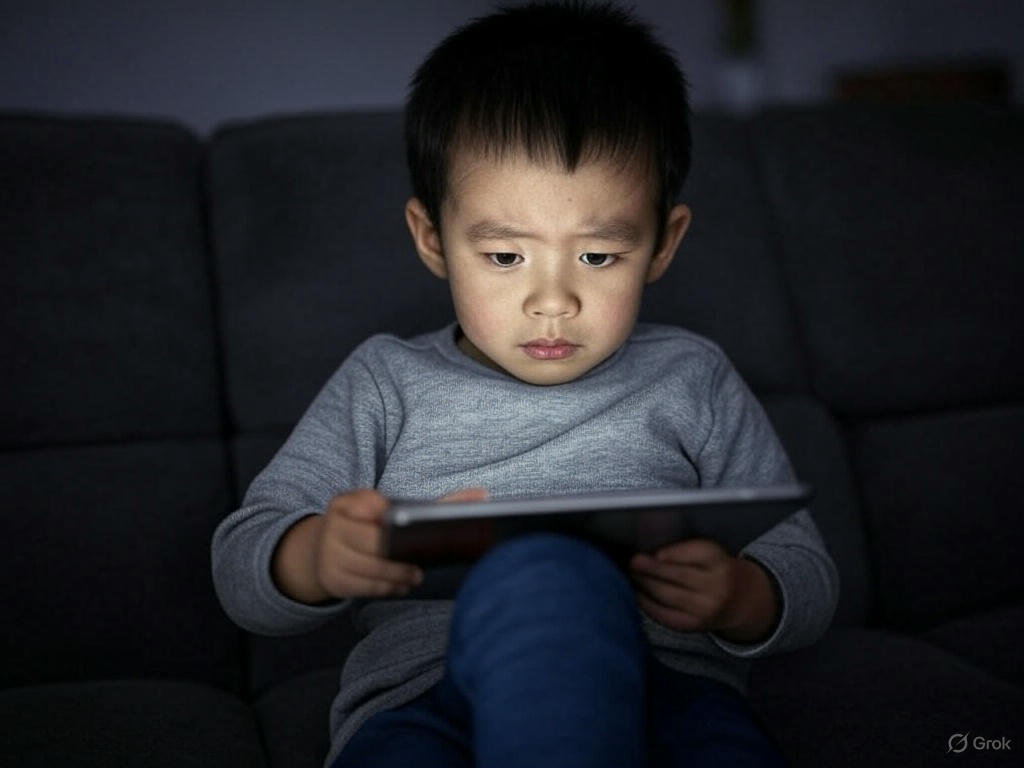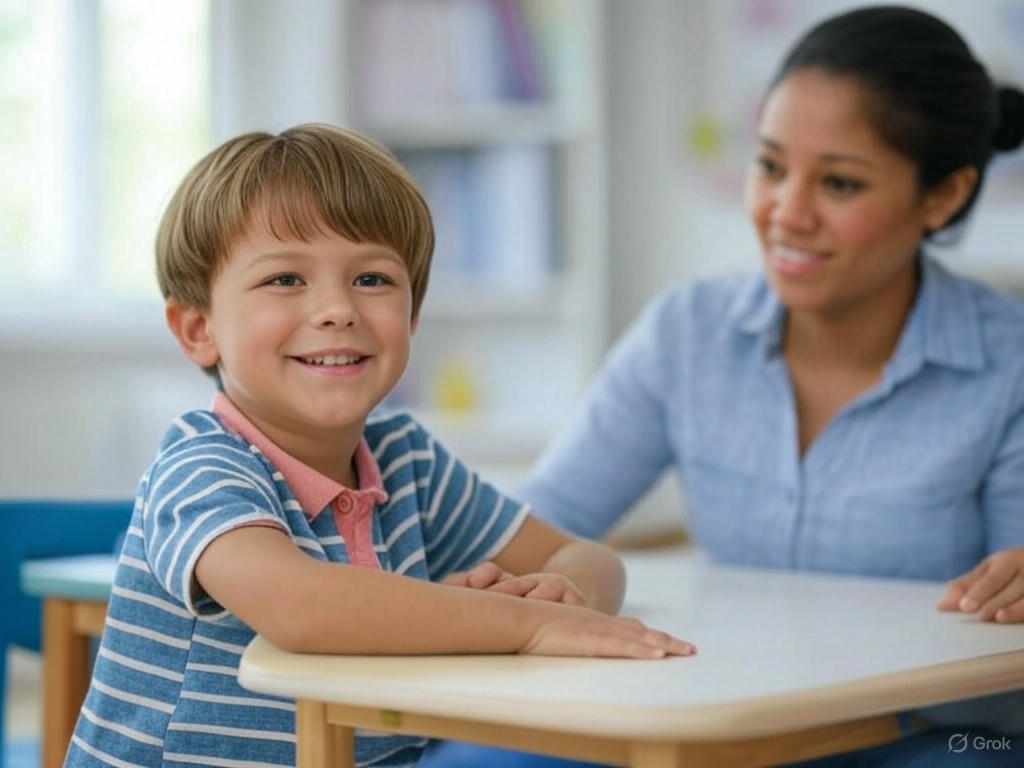How Play Affects Brain Development: A Comprehensive Guide
The Science Behind Play and Brain Development
Play is not just a leisure activity; it is a critical component of brain development. Research shows that play stimulates the production of neural connections in the brain, particularly in the prefrontal cortex, which is responsible for decision-making, problem-solving, and social behavior. This is how play affects brain development at its core.
According to a study published in the journal Neuron, children who engage in regular play exhibit enhanced synaptic plasticity, which is the brain’s ability to adapt and reorganize itself. This adaptability is crucial for learning and memory.
Play also activates the brain’s reward system, releasing dopamine, a neurotransmitter associated with pleasure and motivation. This chemical reaction reinforces positive behaviors and encourages children to explore and learn.
In essence, the science behind how play affects brain development underscores its importance in shaping a child’s cognitive, emotional, and social abilities.
Early Childhood Play: Building Neural Connections
During early childhood, the brain undergoes rapid growth, forming millions of neural connections every second. Play serves as a catalyst for this process, providing the stimulation needed for optimal brain development.
For example, stacking blocks or solving puzzles helps children develop spatial awareness and problem-solving skills. These activities strengthen the connections between neurons, laying the foundation for more complex cognitive functions.
Unstructured play, such as running or exploring, also contributes to sensory integration. This is how play affects brain development by helping children process and respond to sensory information effectively.
Parents and educators can encourage early childhood play by providing a variety of toys and activities that challenge different aspects of brain development.
The Role of Imagination in Cognitive Growth
Imaginative play, such as pretending to be a doctor or a superhero, is a powerful tool for cognitive growth. It allows children to experiment with different roles and scenarios, enhancing their problem-solving and critical-thinking skills.
Studies have shown that children who engage in imaginative play exhibit higher levels of creativity and innovation. This is how play affects brain development by fostering out-of-the-box thinking.
Imaginative play also helps children understand abstract concepts, such as time and space, by allowing them to visualize and manipulate these ideas in a safe environment.
Encouraging imaginative play can be as simple as providing costumes, props, or open-ended toys that inspire creativity and exploration.
Play and Emotional Regulation in Developing Minds
Emotional regulation is a critical skill that children develop through play. Activities like role-playing or cooperative games teach children how to manage their emotions and respond to others empathetically.
For instance, a game of tag can help children learn to cope with the frustration of being “it” while also experiencing the joy of tagging someone else. This is how play affects brain development by teaching emotional resilience.
Research from the American Academy of Pediatrics highlights that play reduces stress hormones like cortisol, promoting a sense of well-being and emotional stability.
By incorporating play into daily routines, parents and educators can help children develop the emotional tools they need to navigate life’s challenges.
Social Play: Enhancing Communication and Empathy
Social play, such as group games or team sports, is essential for developing communication and empathy. It teaches children how to share, take turns, and resolve conflicts.
For example, playing a board game requires children to follow rules, negotiate, and sometimes compromise. This is how play affects brain development by enhancing social skills.
Studies have shown that children who engage in social play are more likely to develop strong interpersonal relationships and exhibit higher levels of emotional intelligence.
Encouraging social play can be as simple as organizing playdates or enrolling children in team-based activities like soccer or drama clubs.
Physical Play and Its Impact on Motor Skills and Brain Health
Physical play, such as running, jumping, or climbing, is crucial for developing motor skills and overall brain health. It improves coordination, balance, and spatial awareness.
Activities like playing on a jungle gym or riding a bike stimulate the cerebellum, the part of the brain responsible for motor control. This is how play affects brain development by enhancing physical and cognitive abilities simultaneously.
Physical play also increases blood flow to the brain, delivering oxygen and nutrients that support neural growth and repair.
Parents can encourage physical play by providing safe, open spaces and age-appropriate equipment for children to explore and enjoy.
How Play Stimulates Problem-Solving and Creativity
Play is a natural way for children to develop problem-solving and creative thinking skills. Whether it’s building a fort or figuring out how to win a game, play challenges children to think critically and adapt to new situations.
For example, a child playing with building blocks learns about balance and stability, which are fundamental engineering concepts. This is how play affects brain development by fostering analytical thinking.
Creative play, such as drawing or storytelling, allows children to express themselves and explore new ideas, further enhancing their cognitive abilities.
Encouraging problem-solving and creativity through play can be as simple as providing open-ended toys or engaging in collaborative activities with your child.
The Link Between Play and Stress Reduction in Children
Play is a natural stress reliever for children. It provides an outlet for pent-up energy and emotions, helping them relax and recharge.
Research shows that play reduces levels of cortisol, the stress hormone, while increasing endorphins, the body’s natural mood elevators. This is how play affects brain development by promoting emotional well-being.
For instance, a game of hide-and-seek can distract a child from their worries, allowing them to focus on the joy of the moment.
Parents and educators can use play as a tool to help children cope with stress, whether it’s through physical activities, creative projects, or simply spending quality time together.
Digital Play vs. Traditional Play: Effects on Brain Development
In today’s digital age, children are increasingly engaging in digital play, such as video games or educational apps. While these activities can offer cognitive benefits, they also come with potential drawbacks.
For example, video games can improve hand-eye coordination and problem-solving skills but may also lead to reduced physical activity and social interaction. This is how play affects brain development differently depending on the medium.
Traditional play, on the other hand, offers a more holistic approach to development, engaging multiple senses and encouraging face-to-face interactions.
Striking a balance between digital and traditional play is essential for ensuring well-rounded brain development in children.
Encouraging Play for Lifelong Learning and Adaptability
Play is not just for children; it is a lifelong tool for learning and adaptability. Engaging in playful activities helps individuals of all ages develop new skills and perspectives.
For children, play lays the foundation for a love of learning, encouraging curiosity and exploration. This is how play affects brain development in a way that fosters lifelong adaptability.
Adults can also benefit from play by engaging in hobbies or recreational activities that challenge their minds and bodies.
By prioritizing play at every stage of life, we can cultivate a more resilient and adaptable society.
FAQ
- Why is play important for brain development?
- Play is crucial for building neural connections, enhancing cognitive skills, and promoting emotional well-being. This is how play affects brain development in children.
- What types of play are best for brain development?
- A mix of physical, social, imaginative, and problem-solving play offers the most comprehensive benefits for brain development.
- How does digital play compare to traditional play?
- While digital play can improve certain skills like hand-eye coordination, traditional play offers more holistic benefits for brain development. Balancing both is key to understanding how play affects brain development.



